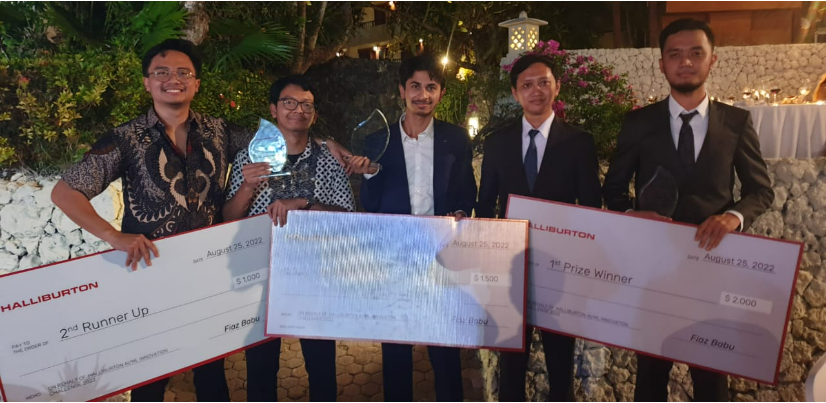Indonesian students win Halliburton challenge with geothermal prospecting project

The team from Pertamina University won the Halliburton competition with a web-based app that uses machine learning to identify prospect areas for geothermal exploration.
Students from Pertamina University (UPER) recently won the first prize in the “Halliburton AI/ML Innovate Challenge” held on August 25 to 26, 2022. Mochammad Naufal Septifiandi and Firman Cahya Putra Adistia from the Petroleum Engineering Study Program of UPER won by developing a website-based application that uses machine learning (ML) to search for potential prospect areas for geothermal exploration.
“This application, which we call The Dimensionless, helps users determine locations that allow them to develop geothermal energy quickly, accurately, and efficiently. Through the use of Machine Learning (ML) which we have integrated into the application, it is hoped that the level of uncertainty in the exploration of New and Renewable Energy (EBT) can decrease,” described Firman during an online interview.
Users of the application will only need to input data such as geological, geochemical, or temperature data. This will then be processed by machine learning to determine several zones with ranking of geothermal potential. “Even for those who don’t understand programming languages, the application will be very easy to use. In addition, we also added a data and report download feature that can be used for further analysis,” added Firman. However, the project proponents emphasize that findings from the application still need to be validated through actual field measurements.
The team from UPER managed to outperform teams from Dibrugarh University, India (1st runner up) and the University Teknologi Petronas, Malaysia (2nd runner up).
Firman and Naufal emphasized how classes such as Geothermal Engineering and Artificial Intelligence in the Oil and Gas Sector proved to be instrumental in the victory, as was guidance from the lecturers at UPER. The energy industry has a lot of data, and this can be leveraged through growing developments in Artificial Intelligence and Machine Learning. Naufal hopes that their innovation can grow further, particularly through server development and cost calculation, such that their application can be used by companies and governments looking to explore geothermal resources.
Machine learning is a fast-growing research area in the field of geothermal energy, particularly in improving the identification of prospects and increasing the efficiency of power generating facilities. The Karlsruhe Institute of Technology (KIT) in Germany currently has an open PhD position in the upcoming Machine Learning for Enhancing Geothermal energy production (MALEG) project, for which applications will close on September 30, 2022.
Source: Universitas Pertamina